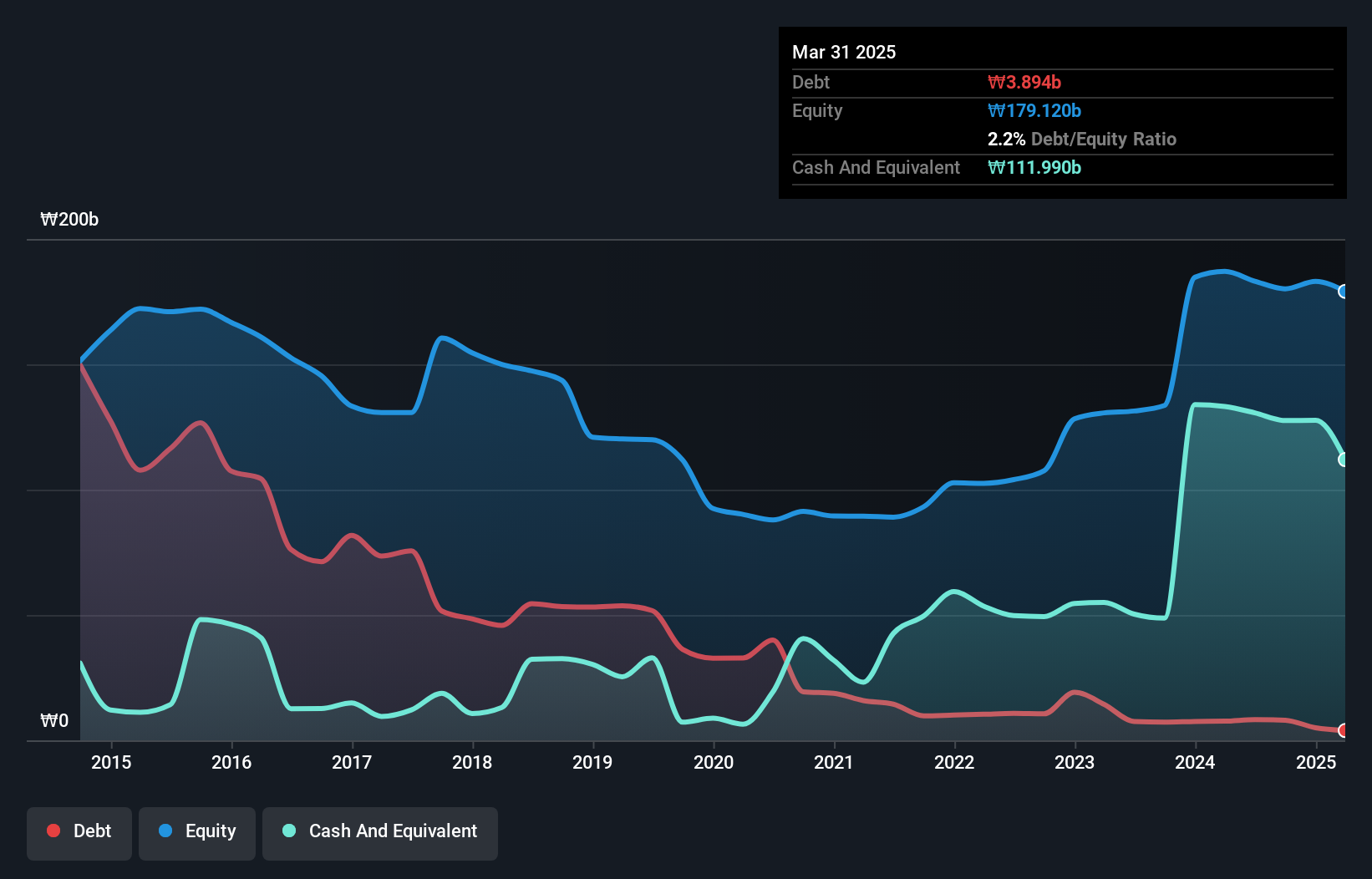Warren Buffett famously said, 'Volatility is far from synonymous with risk.' It's only natural to consider a company's balance sheet when you examine how risky it is, since debt is often involved when a business collapses. We can see that NK Co., Ltd. (KRX:085310) does use debt in its business. But the real question is whether this debt is making the company risky.
What Risk Does Debt Bring?
Debt and other liabilities become risky for a business when it cannot easily fulfill those obligations, either with free cash flow or by raising capital at an attractive price. Part and parcel of capitalism is the process of 'creative destruction' where failed businesses are mercilessly liquidated by their bankers. However, a more common (but still painful) scenario is that it has to raise new equity capital at a low price, thus permanently diluting shareholders. By replacing dilution, though, debt can be an extremely good tool for businesses that need capital to invest in growth at high rates of return. When we think about a company's use of debt, we first look at cash and debt together.
What Is NK's Net Debt?
The image below, which you can click on for greater detail, shows that NK had debt of ₩3.89b at the end of March 2025, a reduction from ₩7.63b over a year. But it also has ₩112.0b in cash to offset that, meaning it has ₩108.1b net cash.

How Healthy Is NK's Balance Sheet?
We can see from the most recent balance sheet that NK had liabilities of ₩32.0b falling due within a year, and liabilities of ₩6.87b due beyond that. Offsetting this, it had ₩112.0b in cash and ₩14.8b in receivables that were due within 12 months. So it can boast ₩87.9b more liquid assets than total liabilities.
This luscious liquidity implies that NK's balance sheet is sturdy like a giant sequoia tree. On this view, lenders should feel as safe as the beloved of a black-belt karate master. Simply put, the fact that NK has more cash than debt is arguably a good indication that it can manage its debt safely. When analysing debt levels, the balance sheet is the obvious place to start. But you can't view debt in total isolation; since NK will need earnings to service that debt. So if you're keen to discover more about its earnings, it might be worth checking out this graph of its long term earnings trend.
See our latest analysis for NK
In the last year NK wasn't profitable at an EBIT level, but managed to grow its revenue by 20%, to ₩109b. Shareholders probably have their fingers crossed that it can grow its way to profits.
So How Risky Is NK?
Statistically speaking companies that lose money are riskier than those that make money. And in the last year NK had an earnings before interest and tax (EBIT) loss, truth be told. Indeed, in that time it burnt through ₩23b of cash and made a loss of ₩2.6b. Given it only has net cash of ₩108.1b, the company may need to raise more capital if it doesn't reach break-even soon. With very solid revenue growth in the last year, NK may be on a path to profitability. Pre-profit companies are often risky, but they can also offer great rewards. There's no doubt that we learn most about debt from the balance sheet. But ultimately, every company can contain risks that exist outside of the balance sheet. Be aware that NK is showing 2 warning signs in our investment analysis , you should know about...
Of course, if you're the type of investor who prefers buying stocks without the burden of debt, then don't hesitate to discover our exclusive list of net cash growth stocks, today.
Valuation is complex, but we're here to simplify it.
Discover if NK might be undervalued or overvalued with our detailed analysis, featuring fair value estimates, potential risks, dividends, insider trades, and its financial condition.
Access Free AnalysisHave feedback on this article? Concerned about the content? Get in touch with us directly. Alternatively, email editorial-team (at) simplywallst.com.
This article by Simply Wall St is general in nature. We provide commentary based on historical data and analyst forecasts only using an unbiased methodology and our articles are not intended to be financial advice. It does not constitute a recommendation to buy or sell any stock, and does not take account of your objectives, or your financial situation. We aim to bring you long-term focused analysis driven by fundamental data. Note that our analysis may not factor in the latest price-sensitive company announcements or qualitative material. Simply Wall St has no position in any stocks mentioned.
About KOSE:A085310
NK
Provides high-pressure gas container products in Korea and internationally.
Adequate balance sheet with very low risk.
Market Insights
Community Narratives




